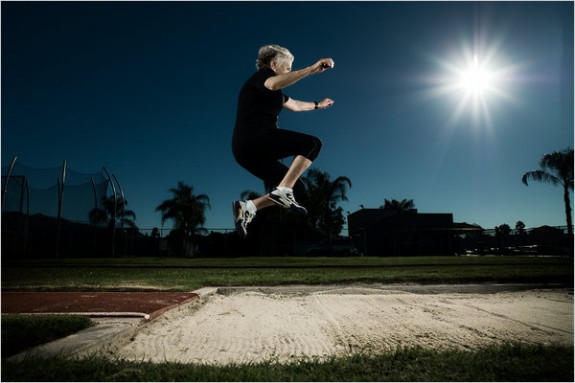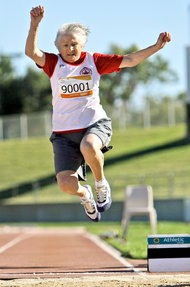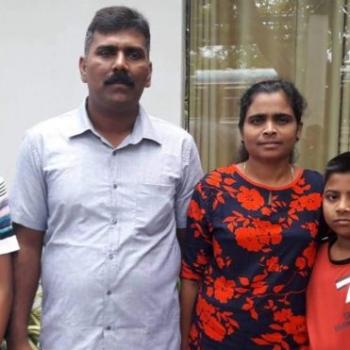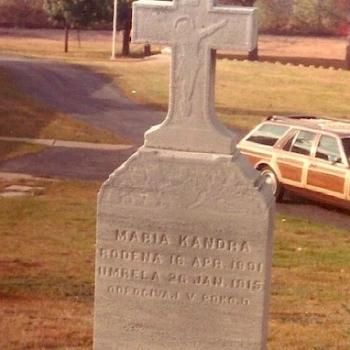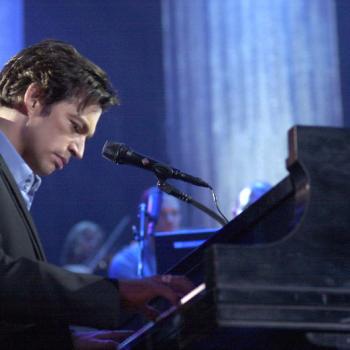Photo: Patrik Giardino / New York Times
With the eyes of the world focused on the Olympics in Russia, last week the New York Times profiled a record-breaking international athlete. She’s not in the Olympics. But she is, in every sense, a phenomenon.
Her name is Olga Kotolko. Olga grew up in a large family in Canada, the 7th of 11 children. Her parents were farmers. Growing up, she did the usual farm chores—slopping the pigs and milking cows— then had to walk two miles to school every day. Olga soon developed a love for softball. In time, that grew into a love for other sports, especially track and field.
Today, she holds 26 world records in her class, including records for the high jump, the hammer throw and the 200-meter run. As you might expect, it takes discipline. She works out every day—running, lifting weights, exercising.
But there’s one thing that sets her apart from other athletes.
Olga Kotolko is 94-years-old.
She began her track-and-field career when she was 77.
Her story is now the subject of a book by writer Bruce Grierson called “What Makes Olga Run?” Grierson wanted to find out—and, maybe, uncover some secrets about the aging process. Tests showed that Olga was aging at a much slower rate than most people. Was it because of diet? Exercise? Genetics?
All of those help—though her diet is rich in meat, cottage cheese and one weakness, tapioca pudding. What Grierson found is that Olga Kotolko’s amazing story may be the result of something else.
In short: Olga wants it. She wants to perform at the peak of her abilities. She wants to get up and do the hard work of building her body day after day after day. She wants to keep moving, strengthening, developing the gifts she has been given. She is highly motivated.
Take away all the other variables, and it comes down to this:
What makes Olga run is a matter of will. It’s her choice.
We aren’t all 94-year-old track and field stars. But I have to think Olga’s story holds a valuable lesson for us. Her life tells us: we are what we choose to be.
That, in a nutshell, is one of the messages of this Sunday’s scripture. The readings are about the choices we face—how we are called to do what is right, what is just, what follows God’s law—and how we often choose not to.
Sirach puts it this way:
“Before man are life and death, good and evil, whichever he chooses shall be given him.”
The choice is ours. The choice to follow God’s law, or our own whims. The choice to obey the commandments, or follow our own desires.
In other words: the choice of life or death.
In the gospel, Jesus gives a number of examples of sin—murder, adultery, lying under oath. But he makes the compelling point that all these greater sins begin with some lesser sin. And they all have their roots in the human heart.
They start with what we choose.
Most sins begin that way. It’s an idea, a thought, a desire. It’s the choice to do something easy or quick or pleasurable and know that you won’t get caught. It starts with that faint inkling that you can get away with something—and then, to try it.
It begins with a choice.
“Before man are life and death, good and evil. Whichever he chooses shall be given him.”
We are being reminded here that God isn’t the one who seals our fate.
We do it to ourselves.
We do it by our choices.
One of the blessings of our humanity, something that goes back to the very dawn of time and the first day man walked through Eden, is that God gives us that choice. He gives us free will.
But what are we doing with it?
More to the point—from what Jesus says in the gospel—what are we thinking of doing with it?
Do we want to be saved? Are we even thinking that way?
Do we desire heaven enough to do the hard work that salvation entails? Do we get up every morning craving to be our best, striving to become saints? Do we feel we owe it to ourselves, and to God?
One of the lessons of Olga Kotolko’s life is that excellence takes effort. That is especially true for each of us in our lives as Catholic Christians.
That means stopping the smaller sins before they become greater ones.
But that also means sacrifice. It means caring for others no one else cares about: loving the unlovable, showing mercy to those who seem merciless, forgiving those who have done what we think is unforgivable.
It means following the example of Christ, all the way to Calvary.
It means striving to live the gospel more fully, and doing it with fidelity and with joy, so that we can fulfill God’s dream for us.
This is the beautiful, difficult, challenging work of a lifetime. And we are never too old to do it.
Olga Kotolko didn’t begin hurling javelins and running races until she was 77. Next month she turns 95. She’s already broken every record for women in her age group. She is now poised to start setting records in the next age group: ages 95 to 99.
Olga became a champion because she wanted to. She wanted to fulfill her potential. She didn’t give up or give in. To paraphrase Nike: she just did it.
Of course, we can’t all be Olga Kotolko. We don’t all have resilient bodies and hardy genes.
But: like Olga, we have a choice.
All of us, if we choose, can become saints.
Olga was motivated to become the best she could.
Are we?

